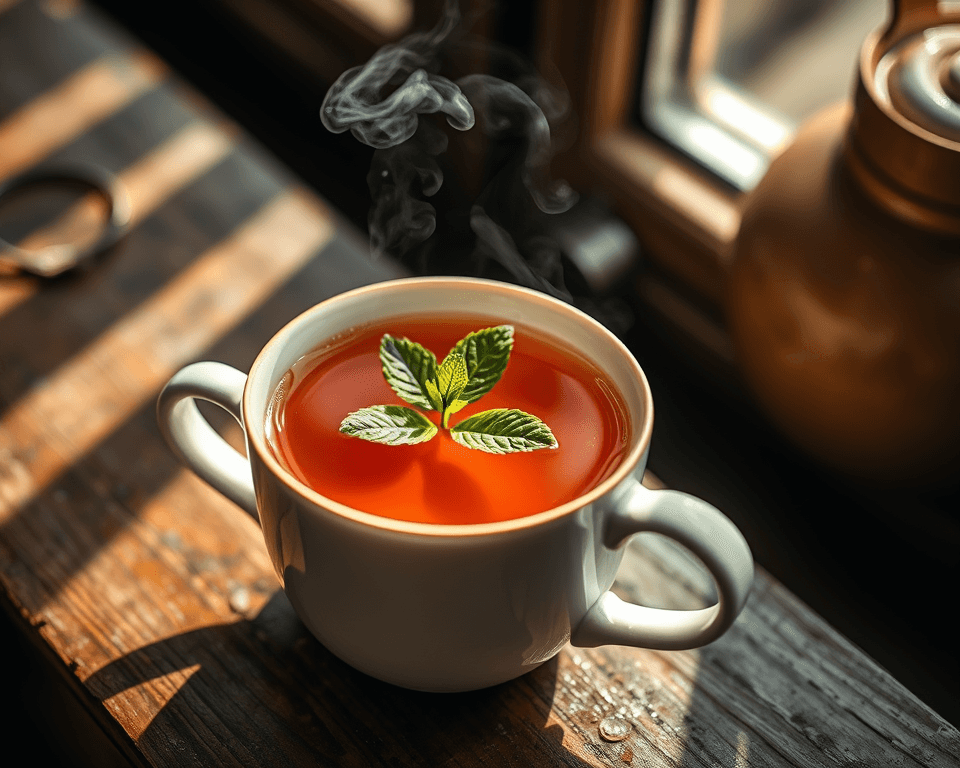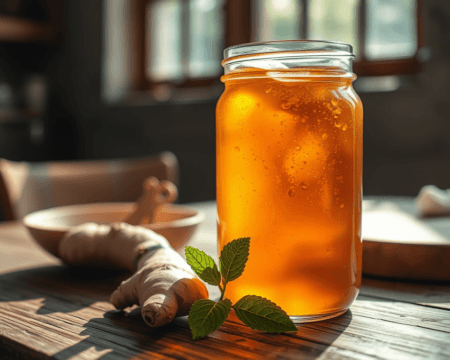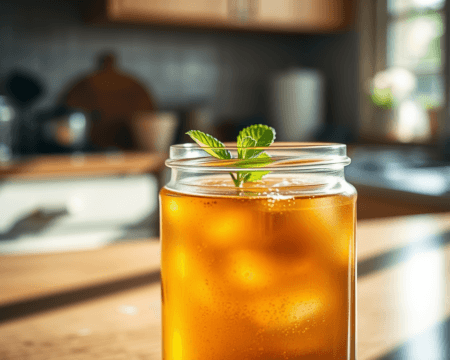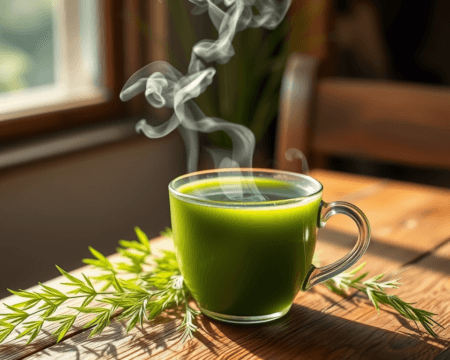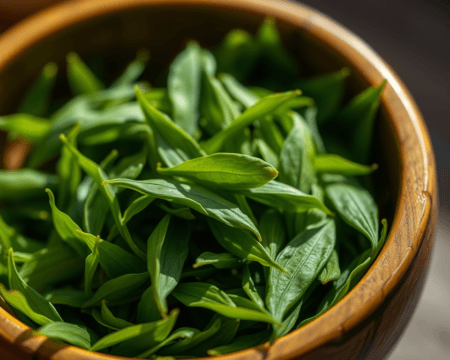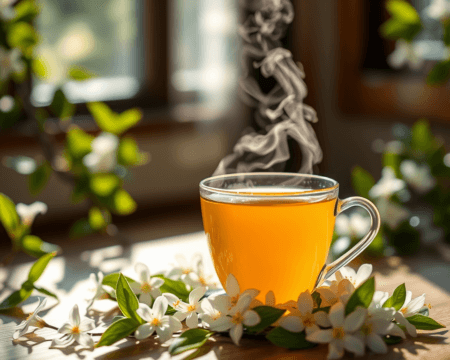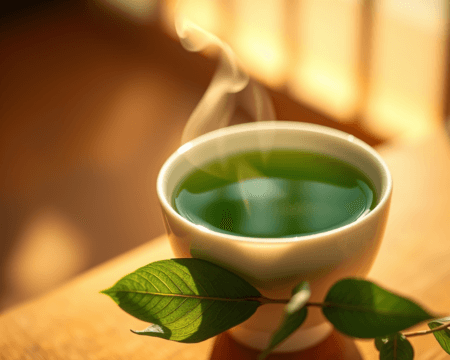You’ve got your mug in hand, steam rising, and the comforting aroma of herbal tea swirling around you. But here’s the real question gnawing at you: does herbal tea have caffeine? If you’re like most people, you’re on a caffeine rollercoaster, contemplating the benefits of herbal alternatives while trying to dodge those jitters. Believe me, I’ve been there! Let’s break it down.
Key Takeaways
- Not All Herbal Teas Are Caffeine-Free: Some options do have caffeine, especially if they include certain plants like yerba maté.
- Decaffeination Can Be Misleading: The process is more complex than it seems, and not all decaffeinated options are caffeine-free.
- Popular Choices Are Here to Stay: Chamomile, rooibos, and peppermint are not just trendy—they pack a punch in flavor and health benefits.
What is Herbal Tea?
Definition and Characteristics
So, what exactly is herbal tea? Unlike your traditional black or green tea made from Camellia sinensis leaves, herbal tea—or herbal infusions, as some folks call it—comes from various plants, herbs, flowers, and fruits. Trust me; you’ve got a smorgasbord of choices. Think of it as plant-based goodness brewed to perfection.
Herbal teas are generally caffeine-free because they don’t use the leaves of traditional tea plants. Instead, we’re talking about an eclectic mix: think hibiscus petals, chamomile flowers, dried berries, and even spicy herbs. Each infusion reflects a unique flavor profile and health benefit.
How Herbal Tea Differs from Traditional Tea
Now let’s clear up the confusion. While traditional teas are all about the tea leaves, herbal teas are a free-for-all. They lack those lovely green or black tea leaves, meaning they dodge the caffeine bullet—most of the time.
Many traditional teas contain caffeine, which we all know can pump us up but also lead to anxiety and energy crashes. So, if you’re keen on cutting back on those jitters, herbal options are your ticket. Just remember, not all herbal blends are the same. Stay sharp and read those labels!
Caffeine Content in Herbal Tea
Are Herbal Teas Naturally Caffeine-Free?
If you’re wondering whether herbal teas are naturally caffeine-free, the answer is mainly yes. Many popular options like chamomile and peppermint are great choices that promise zero caffeine. But, there are exceptions.
Some herbal teas mix other plants that do contain caffeine, like yerba maté, which has been all the rage lately. It’s got its benefits but don’t expect to catch restful Z’s after a cup. If pure calm is your goal, aim for the classics like rooibos, which is naturally caffeine-free.
Understanding Misconceptions about Decaffeination
Let’s reshape our perceptions here. Decaffeinated herbal teas are often advertised as the caffeine-free alternative you’ve been hunting for. However, it’s not a straightforward situation. The decaffeination process can vary. Some brands might remove most of the caffeine, but not all. What’s more, the term “decaf” does not equate to “caffeine-free.”
If you’re buying a decaffeinated blend, look into the specifics. Brands like Celestial Seasonings and Twinings offer decaf options, but it’s wise to check those labels. You want to avoid misleading claims that get your hopes up.
Popular Herbal Teas and Their Caffeine Content
Common Caffeine-Free Herbal Teas
Here’s where things get tasty! If you’re looking to sip on some delicious, caffeine-free options, consider these crowd-pleasers:
- Chamomile Tea: This golden goodness will help you unwind and is known for its soothing properties.
- Peppermint Tea: Perfect for digestion, this minty option is refreshing and naturally caffeine-free.
- Rooibos: Rich in antioxidants, it’s a great base for flavored blends, with a smooth and sweet profile.
- Hibiscus Tea: This vibrant brew is not only gorgeous but also said to support heart health.
Each of these options promises a world of flavor without the jitters you’d get with traditional teas.
Herbal Teas with Low Caffeine Levels (If Applicable)
Now, if you still want a bit of a kick while craving herbal goodness, some teas fit the bill. Think of hybrid options like Yerba Maté and even some white teas. They can serve as a bridge—offering lower caffeine content than black or green without sacrificing flavor.
So if you’re feeling experimental, try blending some herbal elements with low-caffeine teas. You’ll get the benefits without the caffeine overload.
Health Benefits of Drinking Caffeine-Free Herbal Teas
Therapeutic Properties of Herbal Teas
We’re not just chatting about caffeine-free brews for fun—they come loaded with health benefits! Many herbal teas are packed with antioxidants, digestive aids, and calming properties. For instance, chamomile’s anti-inflammatory attributes can help you catch some Z’s, while peppermint is famous for aiding digestion.
Rooibos, on the flip side, is known for its antioxidants, which are quite helpful in fighting oxidative stress in your body. Increasing your intake of these herbal options could seriously boost your overall wellness. It’s like having a wellness army in your cup!
Consumer Preferences for Caffeine Alternatives
You’re not alone in your search for caffeine alternatives. More folks are steering towards herbal options, especially following trends focused on health and well-being. In fact, surveys indicate that a significant portion of the population is cutting back on caffeine and seeking herbal tea varieties for relaxation and improved sleep—a smart decision if you ask me.
If you want delicious alternatives, consider the kinds of trending herbal selections. Brands like Yogi Tea and Stash Tea offer a plethora of flavored blends that cater to these health-conscious folks, making herbal teas more popular than ever.
Myths and Facts About Herbal Tea Consumption
Clarifying the Common Misconceptions
When it comes to herbal tea drinking, some myths need to be busted. One common misconception is that all herbal teas deliver the same health benefits. Just because they all claim to be “herbal” doesn’t mean they’re created equal. Your herbal infusion can either be a wellness powerhouse or a glorified hot beverage.
Also, people often think all herbal teas are caffeine-free, and as we’ve seen, that’s not quite right. Being aware of what you’re consuming plays a huge role in your health journey, so read those labels!
User Testimonials and Experiences
It’s always refreshing to hear experiences from users who have made the switch to herbal teas. Countless folks have reported feeling more relaxed and centered after switching from coffee or traditional teas. Personal stories highlight how simple changes in beverage choices can lead to more vibrant health. Whether they’re now reveling in the calming qualities of chamomile or enjoying the sweetness of rooibos, their journeys point to a fundamental truth: herbal tea can transform not just your routine, but also your mind and body.
There you go! With all this knowledge at your fingertips, you’re armed to make informed decisions in your herbal tea journey. Just remember to read labels, explore different blends, and let those flavors take you on a delightful ride!
Frequently Asked Questions
Are all herbal teas caffeine-free?
Not all herbal teas are caffeine-free. Some, like yerba maté and guayusa, contain caffeine. Always check the specific ingredients if you want to avoid caffeine completely.
What does “decaffeinated” mean for tea?
Decaffeinated tea has had most of its caffeine removed, but it can still contain trace amounts. The decaffeination process varies, so it’s important to read labels for exact caffeine content if you’re sensitive to caffeine.
What are the health benefits of chamomile tea?
Chamomile tea is known for its calming properties, helping to reduce stress and improve sleep quality. It also has anti-inflammatory and antioxidant effects, making it beneficial for digestion and overall health.
Is rooibos tea a good alternative to regular tea?
Yes, rooibos tea is caffeine-free and is rich in antioxidants. It’s a great alternative for those looking for a flavorful, healthful beverage without caffeine, and it can be enjoyed hot or iced.
Can peppermint tea aid digestion?
Peppermint tea can help alleviate digestive issues, including bloating and gas. It relaxes the muscles in the gastrointestinal tract, promoting smoother digestion and offering relief from discomfort.
How can I choose the right herbal tea for me?
Consider your personal health goals and preferences. If you’re looking for relaxation, chamomile may be best. For energy, avoid caffeine-free options and choose something like ginger tea for its invigorating properties.
Is it safe to drink herbal teas during pregnancy?
While many herbal teas are safe, some herbs can cause complications during pregnancy. It’s important to consult a healthcare provider before consuming herbal teas if you’re pregnant or breastfeeding to ensure safety.
What should I look for in quality herbal teas?
When selecting herbal teas, look for organic and high-quality brands. Check for whole leaf ingredients and avoid those with artificial additives or fillers to ensure you’re getting the best flavor and benefits.
Can I drink herbal tea daily?
Most herbal teas can be enjoyed daily as part of a healthy diet. However, it’s wise to vary your choices and consult with a healthcare professional if you plan to consume them in large quantities.




